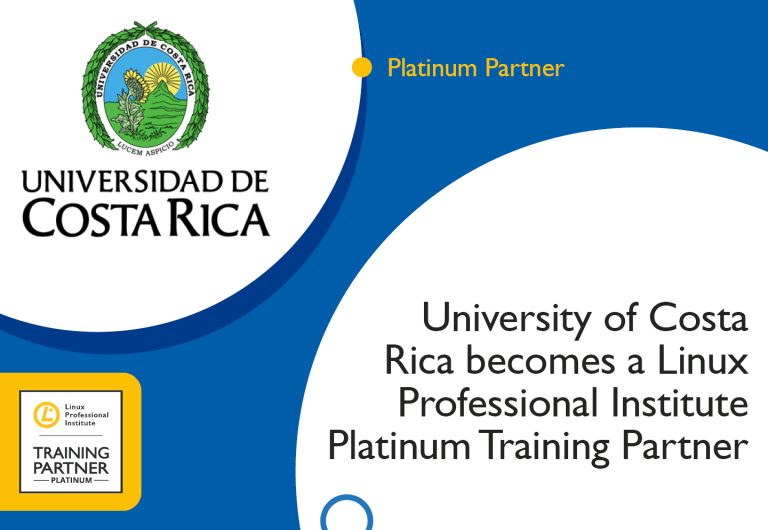University of Costa Rica becomes a Platinum Training Partner

The University of Costa Rica is an LPI partner. We conducted the following interview with managers at the university’s technology department (Academia de Tecnología).
How long has the Academia de Tecnología been offering education about free, libre, and open source (FLOSS) technologies?
The University of Costa Rica began a free software project in 2008, when several groups within the university realized the value of potentially using free software on various information platforms within our institution.
How many of the systems used for administration and back-end activities (billing, etc.) use Linux and FLOSS software?
Approximately 10 platforms use FLOSS.
Do you use open source compilers and other programming tools?
Yes. We use Python in some university courses, especially those directed toward careers in computer and information science.
Do you teach students specific techniques for working in open source communities?
The University has a free software community comprising more than 6,000 people on its social network. The community is made up of people in the University who share an interest in FLOSS. Their areas of activity come together in a quest for the diffusion of free software, culture, and knowledge.
Do you encourage students to contribute to open source projects outside the school?
Yes, through participation in the free software community, as a well as by creating some projects associated with specific university systems that use FLOSS.
What are the major challenges in your department, and in the University as a whole?
Finding a way to establish a mechanism to connect with everyone interested in collaborating with our efforts in the area of free software.
How do you hope to benefit from the partnership with Linux Professional Institute?
We expect to increase knowledge of these subjects among the university community, and to improve the management of our platforms through automation with FLOSS tools.
How often does the school offer certification tests for LPI and other certifications?
They are offered annually to people performing functions related to information technology at the University of Costa Rica.
How many students, on average, enroll each year at the Academia de Tecnología?
During 2021, a total of 35 students matriculated into programs related directly to topics covered by LPI, with 33 students approved to enter our Linux program.
Has anyone at the university received LPI certification?
Some teachers at the Academia de Tecnología took the LPI Linux Essentials exam last year.
What do you do to promote LPI among the students?
Promotion occurs during the six periods of regular matriculation each year using our channels of communication, principally social networks.
What is the typical cost of textbooks and other materials students need? Do you find that free materials are useful?
The cost is approximately $30 US per person, which grants them access to our web sites, supplemented by didactic materials supplied by LPI.
Is internet access difficult for some students to get?
We have received no reports of difficulties with internet access on the part of students or course instructors. For people who have complex needs, our Academy offers 11 fully equipped laboratories, which are available to students who need them.